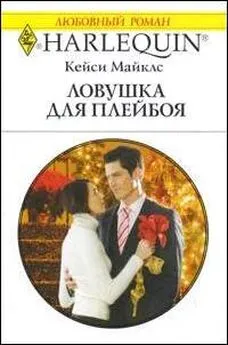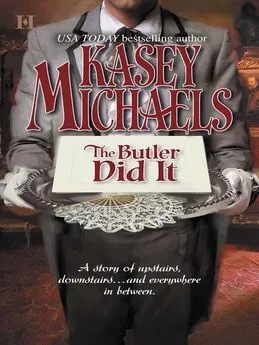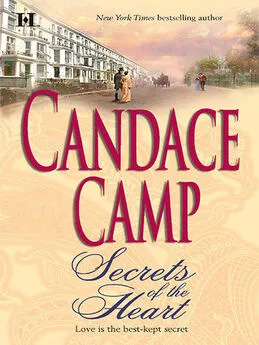Кейси Майклс - The Secrets of the Heart
- Название:The Secrets of the Heart
- Автор:
- Жанр:
- Издательство:неизвестно
- Год:неизвестен
- ISBN:нет данных
- Рейтинг:
- Избранное:Добавить в избранное
-
Отзывы:
-
Ваша оценка:
Кейси Майклс - The Secrets of the Heart краткое содержание
The Secrets of the Heart - читать онлайн бесплатно ознакомительный отрывок
Интервал:
Закладка:
“You won’t allow yourself to be caught, will you?” Frapple asked, intent on examining his lordship’s chosen lace neckpiece for wrinkles before sighing, roughly stuffing the offending thing into his pocket, and removing its twin from the cabinet.
“Frapple!” Christian exclaimed. “Don’t tell me you’re worried about me.”
“Not in the slightest, my lord,” the servant answered, already heading for the door to the hallway, the apple-green velvet jacket in his hand. “It’s only that I’m much too long in the tooth to have to begin again with a new employer. Why, the man might even think I’d kowtow to him. Now, I’m just going to have Meg do something with this left sleeve. It’s rather crushed. Please, my lord, as I may be detained for some minutes, I must beg that you do not change your mind about your rig-out for the evening and endeavor to dress yourself. We both, I hope, remember the disaster that befell the ecru satin.”
Christian nodded and waved Frapple on his way, not wishing to revisit the subject of the form-fitting ecru satin jacket and the seam he had split in attempting to don it without aid, or even to think of any of his Society clothing.
If he had his druthers, which he of course did not, he would step back in time and attempt to bring into vogue a more comfortable, less constricting fashion than he had done in reinventing flamboyant Georgian dress. Thank God he’d stopped short of powdering his hair.
He rose from his chair and drifted into the adjoining bedchamber, seating himself at the desk he used when composing his weekly letters to the London newspapers. What would be his subject for next week? Would he tell of the mill workers he had seen who’d been crippled by faulty machinery, their thumbs mashed into useless lumps of nothingness? No. That might unduly upset the ladies, who did not appreciate detailed descriptions of gore served up with their morning chocolate.
Starving babies were more to the ladies’ tastes, Christian had already learned. The ladies could delicately weep into their handkerchiefs between helpings of coddled eggs and bemoan the fate of the “poor, wretched darlings” without having to do more than send off a bank draft to one of the local orphanages. It was so morally uplifting, this generosity that soothed their shallow consciences and that cost them nothing but money.
Christian propped his elbows on the desktop and rested his head on his hands. He was tired. So tired. And it had little to do with the endless social whirl, his private missions, or even the strain of keeping his two identities separate from each other.
He was tired of the poverty, the heartache, the sad, hollow eyes and the crying mothers. He was tired of hearing about men such as Slow Dickie, being beaten merely because he could not defend himself against being beaten.
He was exhausted by the futility of saving a few while the many still suffered. He was weary of this back-door subterfuge meant to waken his peers to the desperate plight of those they would call the “solid English citizenry.”
But mostly, Christian was angry. How could his fellow peers be so blind, so damnably selfish, so fearful of the masses that they would be foolish enough to incite them to insurrection?
His peers. Idiots! Jackals! The whole bloody lot of them! Christian slammed a fist against the tabletop, jarring the small lidded crystal bowl holding his supply of ink. All they cared about was the cut of their coats, the latest gossip, and clinging to their supposed superiority with all their might.
When Christian went into Society he did it to hold up a looking glass to their foibles, showing them with his own overdressed, overly impressed-with-himself posture the folly of worshiping such cultivated shallowness and hoping they would somehow summon up the brainpower to compare their pampered, wasteful, wasted lives with the majority of their countrymen who had to scrabble for their daily bread.
Yes, he had pricked their consciences. Yes, a few of them now interested themselves in good works. Yes, they slyly ridiculed Lord Sidmouth as they went down the dance, tsk-tsking at his insistence upon championing the master over the servant. But they did it only to mimic the popular Baron St. Clair, to show their wit, and to prove their “humanity.” Not a man jack of them had yet dared to stand up in Parliament to say a word against either Lord Sidmouth or his oppressive edicts.
Christian balled his hands into fists, feeling wave after wave of angry impotence wash over him. Setting himself up as the leading influence in Society had not been enough. The letters had not been enough. Only when the Peacock had begun to ride had any real changes come to places like “Mud City” and other squalid manufacturing villages in the Midlands.
Only when Christian had escalated his mission from cajoling, to eloquence, to violence, had most of the ton even acknowledged that there might be some real injustice to be found in the oppressive Corn Laws and the working conditions in the mills.
And still they didn’t really understand. Instead of emulating the Peacock, Society had decided to be dazzled by him, and to set themselves the project of discovering his true identity.
What a waste. What a damnable, damning waste! And for what? A few dozen pairs of clogs? One more crust of bread for the sad-eyed, stick-thin children of the mill workers? One less hour of near slavery in an already interminable workday?
Christian could see the growing disillusionment in George Trumble’s eyes, sense the unspoken questions, the quiet censure. Their mission, begun with such enthusiasm, such purity of purpose, had grown almost beyond their control, the tail now beginning to wag the dog, their ever-increasingly dangerous exploits demanded by an easily distracted Society’s hunger for more adventure, more excitement, more titillation, more, more, more.
And now Herbert Symington and his partner, the powerful if obtuse Lord Undercliff, had dared to challenge the Peacock’s one great success. Turning fire-starter had not been pleasant for Christian, but what had been an impulsive ploy had immediately proved effective. Mill owners were beginning to ease their stranglehold on their workers on their own, in the hope the Peacock would then spare their houses, their possessions.
However, if Christian were to allow Symington to best him, the work of these last six months—indeed, the success of the past year and more—would all vanish in the twinkling of an eye.
For Christian knew Society now, had learned all about it at the knee of the disenchanted Brummell, and he recognized that English Society loved only one thing more than raising a person onto a pedestal.
That one thing, as Brummell’s disgrace had shown so clearly, was to topple him off again.
And if Christian St. Clair were to fall, if the Peacock were to fail, then the poor would have no champion left to them. Men like Slow Dickie would have put themselves in jeopardy for nothing.
Was it any wonder Christian was so tired? Tired, and disillusioned, and thoroughly disgusted with his fellow man. Was he the only person in London with the intelligence to understand that, unless something were done to alleviate the suffering of the many, it was inevitable that the privileged few would eventually become equal victims of their degenerating civilization?
England was stunting the physical and spiritual growth of an entire generation, a generation of children uprooted from their farms and villages and forced into slums, away from sunlight and open fields.
An entire generation was being raised without mothers close by to teach them, without seeing the inside of either church or school, watching their mothers and sisters turning slattern with poverty, their fathers and brothers either beaten down in the mills or becoming hard, cruel, reckless men whose only ease came either in a pint of cheap gin or in bashing one of their fellows senseless for no other reason than violence brought with it a modicum of power.
Yet in London the chandeliers still glittered, the supper-room tables groaned beneath piles of exotic foodstuffs, the sound of music, and laughter, and the rustling of silken skirts, echoed throughout ballrooms from one end of Mayfair to the other.
Lords still drove to Newmarket for the races, their ladies still spent lavishly on dinner parties and routs and soirees, young men lived for the turf and table, and silly debutantes still whispered behind their fans, their minds filled with nothing but the anticipation of securing themselves wealthy husbands who drove to Newmarket for the races so that they could stay home and spend lavishly on dinner parties and routs and soirees.
Christian leaned back in his chair, all this deep thought giving him the beginnings of a headache. Foolish gentlemen. Spendthrift ladies. Posturing, preening young lords. And feather-brained, mercenary young debutantes. All of them not worth one Slow Dickie and his fight for survival. The devil with all of them!
“And the devil with Gabrielle Laurence,” Christian said out loud, startling himself with his vehemence.
Gabrielle Laurence. So startlingly beautiful, so unusual. So very intelligent—or at least he believed she could be as he’d watched her shift her brilliant green gaze around the ballroom, obviously mentally measuring everyone she saw. But even Gabrielle, whom Christian had discovered the very first night of the Season, had quickly shown herself to be no more than another pretty shell washed up on the glittering beach of the ton, with nothing of substance, of worth, inside her.
Oh, yes, she was bright, even witty. But her aspirations rose no higher than making herself the Sensation of the Season and then snaring a brilliant match with some wealthy, titled gentleman. Still, Christian could not quite lose his fascination with her, could not cease wondering how it would feel to hold her, how she would taste if he kissed her, how those lovely green eyes would open wide as he introduced her to ecstasy.
And so he’d employed his social consequence to give the fiery-haired Original what she wanted, just to find himself despised for his helpful intervention—which fascinated him ever more.
George had been correct to say that Gabrielle did not appreciate being in Christian’s debt. Gabrielle, whose dowerless state had made social success nearly impossible on her own, must have recognized the very real possibility that the powerful St. Clair’s favor could be withdrawn at any time, leaving her just another hopeful debutante. Or even less in fashion than the other young ladies making their debut, as she would then be plagued with two problems: her unusual and unfashionable red hair, and St. Clair’s defection, which would cause others to shun her.
Gabrielle’s quick understanding of her precarious position, that of having her continued success depend upon the whim of a man she so obviously loathed, had served to reinforce Christian’s conclusion that beneath that beautiful shell there was at least the possibility of intelligence.
Over these past two weeks he had become convinced of it. Her daring when they were alone, her deliberate baiting of him in ways that no other person save the inimitable Frapple had dared since his ascension to the pinnacle of social power, had shown him that Gabrielle Laurence was his match in many ways. Which had served to make him even more angry with her.
She, a young woman who was not poor but yet not nearly as wealthy as most debutantes, should know that the social whirl was a hollow world. She, of anyone he had met, possessed the intelligence to thoroughly disdain this same social whirl and apply her great resolve and determination to more substantive matters.
Читать дальшеИнтервал:
Закладка:










